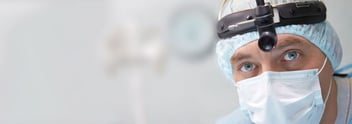Medical Device Market Research
LDA Research was set up in 2011, in Bedfordshire, and for the past 7 years the core team has been pursuing their passion globally. We’re lucky enough to spend our time providing specialist qualitative research for the rapidly growing medical device sector. Every member of the team is committed to providing high quality, bespoke market research solutions for management consultants, design agencies, advertising companies, medical clients and health market research agencies.
Why Use Qualitative Research?
Qualitative medical device marketing research depends upon person-to-person interaction as a means of garnering opinions, motivations, ideas and themes active in the target group for any new medical device. It’s a highly effective methodology for understanding customer satisfaction, sector pricing intelligence, market attractiveness, innovation assessment and perceived use value.
We pride ourselves on the responsive nature of our research methodology, and on our ability – as a team – to tailor our research to the business needs of our clients. That may mean accessing hard-to-reach patients, incorporating tech in innovative ways or moving beyond our database to reach out to participants in regions, or countries that we haven’t worked with before. As a research team we love a challenge, and we keep going until we get what our clients need!
Quantitative Medical Device Market Research for Development
Clients often ask us to find out for them where the greatest unmet needs are in a particular area. This may feed into an R&D process, or it may be at the stage of fine tuning of a device which has already been developed. Dependent on the research aims, we would normally seek to conduct phone, web conferencing, or face-to-face interviews with healthcare professionals, and thought leaders operating within the appropriate professional environment.
Qualitative Research for Usability Testing
Regulation (EU) 2017/745 has raised the European bar for the usability testing of medical devices. We are, therefore, seeing a heightened demand from our clients for device simulations. Being able to see how patients interact with a new product or device provides valuable information to developers and marketers. The ensuing report will often lead to an understanding of training requirements, or refinements needed in the way the device is packaged or presented for use.
Qualitative Patient Focused Research
We have a great track record for pulling together patient focus groups either as online forums, or – if the geographical dispersion is local, or national – as part of a workshop. This methodology is particularly useful where a training need has been identified and the training programme has been designed. Patients will often point out crucial issues that have been overlooked by developers, or use their first hand experience to provide solutions to challenges that have been bugging the development team.
Post Launch Qualitative Research
We can help with the entire product lifecycle, providing accurate, authentic medical market research. Once a device is launched, we are often asked to carry out ‘follow-on’ research with patients using it. We’re always particularly interested in the data provided by people who have ceased to use the product, or those who are aware of the product but have not yet decided to adopt it.
Skilled Moderators are Key to Effective Medical Device Market Research
The skill of the researcher is always paramount to achieving effective result in ethnographic qualitative research. We take care to recruit moderators and interviewers who have a background in either medical research or specialist healthcare. This professional expertise allows them to ask detailed – and at times – probing questions of clients. Granular responses help developers understand to what degree their product is supporting the patient and fulfilling the needs of the market.



